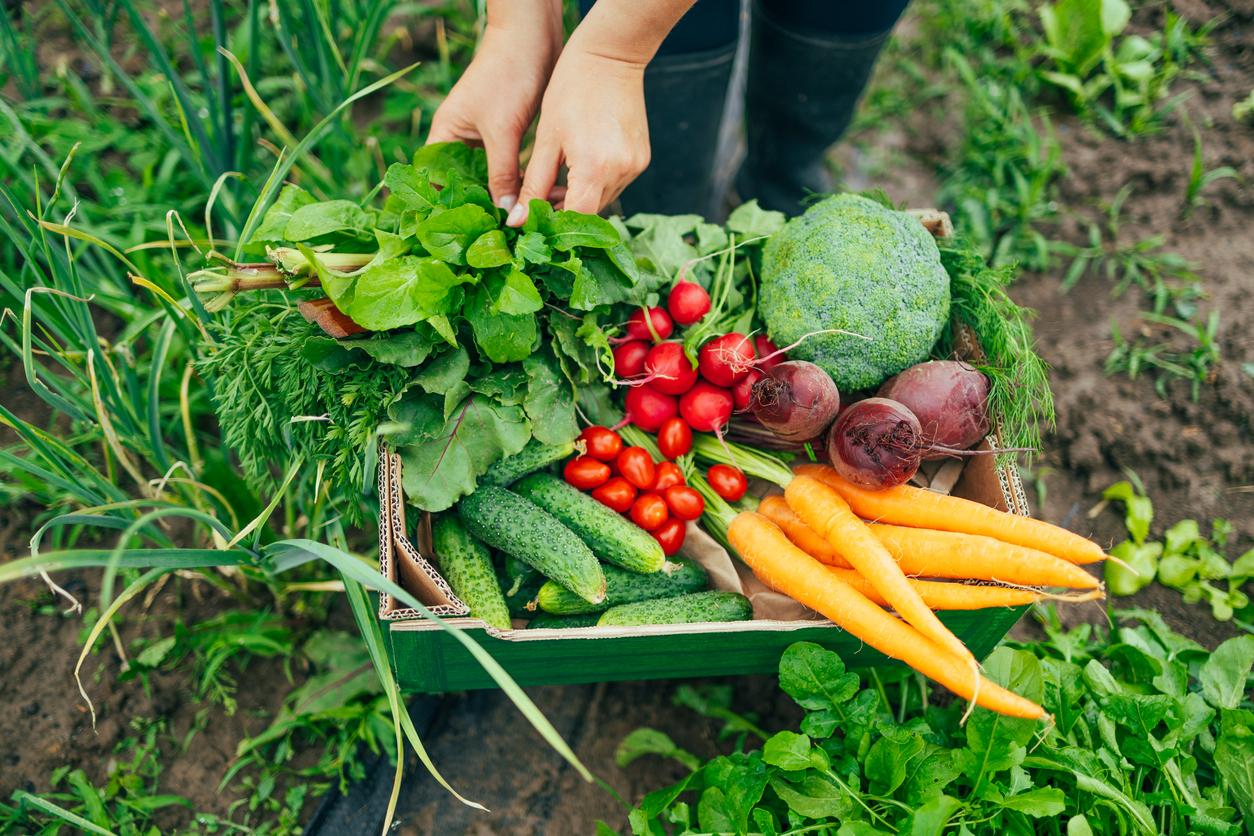An organic and ecological garden
Make your compost
Indispensable for the good health of the soil, compost can be obtained from plant waste (grass clippings, small branches, dead leaves and weeds) and kitchen scraps, such as fruit or vegetable peelings. This mixture can be deposited in several layers of 10 to 20 cm in wooden boxes, or else stored in a pile in an unused corner of the garden. It will have to be watered and aerated regularly in order to make it flexible and homogeneous. After several months, the compost is ready to be spread on the earth.
Mulch the earth
It is often recommended to cover the soil in some places with mulch. A simple operation that prevents weeds from growing, and also helps promote the proliferation of “healthy” insects to ward off insects harmful to plants. Made up of decomposed manure, bark, dead leaves and cut branches, mulching must be spread on the surface, on moist soil, especially at the foot of trees or plants.
A garden without weedkillers
Prefer green manures
Plant manure, horse manure, algae, rich in trace elements, dried poultry blood, bone powder, crushed horn, ash, rock phosphate, are all natural fertilizers that will replace effectively chemicals. Nettle manure, for example, is a very good green manure that will attack aphids and garden pests. It is obtained by mixing in an airtight container 1 kilo of nettles with 10 liters of spring water or rain. After a few weeks of maceration (away from your nostrils!) The solution obtained is used as a fungicide, by pouring it on the ground, or as an insecticide, by spraying it finely on the leaves.
Save water
In spring or summer, water at dawn, or at sunset, to avoid evaporation. Water less often, but for longer, concentrating the water at the base of the plants so that it can be picked up more easily by the roots. The best water in the garden is that which comes to us from the sky, because it is devoid of chlorine and limestone: collect it in a storage container.
A garden without pests
Maintain beneficial insects
Because they are the enemies of pests, some insects and animals are very useful in the garden. Spiders devour aphids and mosquitoes, bedbugs take care of caterpillars while toads love slugs and the dreaded larvae of small plants. Earthworms are also very valuable because the galleries they dig help to aerate and cool the earth. To promote their presence, it is advisable to multiply the small wild areas where the vegetation is dense, to arrange small ponds, nesting boxes and feeders for amphibians and birds, and to build a small stone wall exposed to the sun. sun so as to attract lizards.
… and useful plants too
All gardeners will advise you to plant carnations from the start of spring to offer “organic protection” to your small vegetables. The scent of these flowers repels aphids and their roots make a substance that repels pest worms. In addition, the plant welcomes auxiliary insects: the beautiful tomatoes from the garden are yours!


















